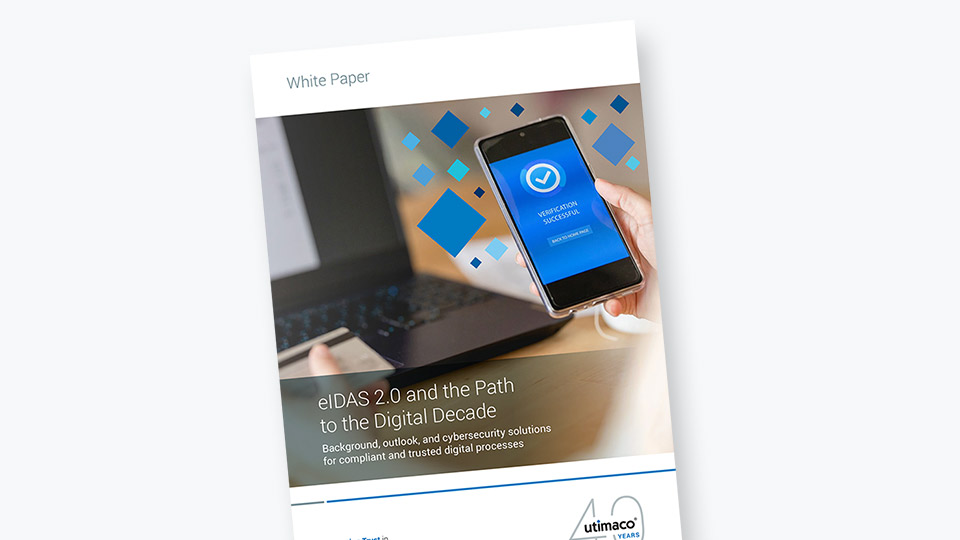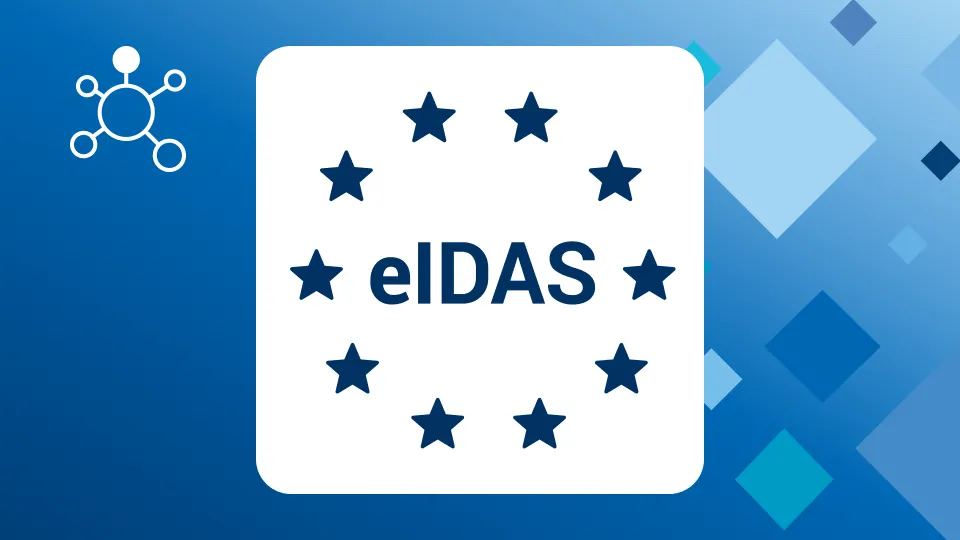The European Commission has now proceeded to test technical specifications for the Common Toolbox for European Digital Identity and a prototype of a Digital Identity Wallet.
Wallets have the potential to completely change the way people interact with different services and manage their online identities. They provide a more user-centric method of identity management, giving people more privacy and control over their personal data.
The purpose of the wallet is a means to store digital credentials. Digital credentials refer to various types of personal information and documents, such as identification cards, driver's licenses, passports, academic degrees, professional certifications, and other forms of verifiable credentials.
Our earlier article - eIDAS 2.0 - Roadmap, Toolbox, and The European Digital Identity Wallet Architecture addressed the roles in the EUDI Wallet Ecosystem and core technical Architecture and Reference Framework.
eIDAS 2.0 & High Levels of Assurance
EU States are now preparing their versions of EUDI wallets to be built to common standards in preparation for launch in 2024.
Member States are required to issue wallets with ‘High’ levels of assurance, which refers to the degree of confidence in the claimed identity of a person. This means that identification and authentication, which will allow for the secure exchange of attestations and attributes (financial and education credentials, driving licenses, etc) need to be carried out with assurances at the highest level.
For this purpose, Qualified electronic signatures become a requirement.
The European Digital Identity Wallet Architecture and Reference Framework (the ‘Toolbox’) explains everything the Member States need to construct the proper technological infrastructure to support the EDIW and implement it.
It includes a collection of common standards, technical references, practices, and recommendations. It also describes everything the Member States need to construct the appropriate technical infrastructure to support the EUDI Wallet and to implement it.
Large-Scale Pilots
Before its implementation in the Member States, the European Digital Identity Wallet will be assessed in four large-scale initiatives. These projects aim to evaluate digital identity wallets in real-world scenarios covering numerous sectors. There will be participation from more than 250 private companies and government agencies from 25 Member States as well as Norway, Iceland, and Ukraine.
The four pilot projects that commenced on 1st April 2023 are as follows:
1. Potential
Piloting the use of EUDI wallets for the authorization of payments for products and services by the wallet user/ holder. This includes accessing a digital public service (for example, when trailing to another Member State, a requirement for proof of identity or a necessity to obtain medical prescriptions) and opening bank accounts.
Use of the EUDI wallet will also include the necessary requirement for signing contracts online, where a secure digital signature is provided.
2. NOBID
The NOBID Consortium is developing a large-scale pilot to prepare, implement and test the EU Digital Identity Wallet. This will involve several banks for the authorization of payments for products and services. They aim to address the issuance of wallets, means of payment by financial institutions and acceptance of retail payments.
3. DC4EU (Digital Credentials for Europe)
The pilot of the wallet across the education sector (by securing education credentials) and the Social Security domain. This will be achieved by deploying and accessing European interoperable digital service infrastructures, including integration, by applying the eIDAS cross-border framework.
4. EUWC (EU Digital Identity Wallet Consortium)
Storing and presenting Digital Travel essentials within the wallet, enabling cross-border movement within Europe. Further scope to include business digital identity wallets as well as storage of payment credentials to authorize account-to-account based transactions.
Pilot Projects & Member States
The 4 pilot projects that are carried out by each Consortium unite private and public companies from various Member States:
Four Pilot Projects & Respective Consortiums
|
POTENTIAL |
NOBID |
DC4EU |
EWC |
|
| Belgium | 1, 4, 5 | |||
| Bulgaria | ||||
| Czech Republic | 3, 6 | 9 | 8 | |
| Germany | 1, 2, 3, 4, 5 | 10 | 7, 8, 9 | |
| Denmark | 9 | 10, 11 | ||
| Estonia | 4 | |||
| Ireland | 11 | |||
| Greece | 1, 2, 3, 4, 5, 6 | 10 | 7, 8 | |
| Spain | 4, 6 | 10 | 7 | |
| France | 1, 2, 3, 4, 5, 6 | 8, 9 | ||
| Croatia | ||||
| Italy | 1, 4, 6 | 9 | 8 | |
| Cyprus | 1, 4, 5, 6 | |||
| Latvia | 9 | |||
| Lithuania | 4 | 10 | ||
| Luxembourg | 1, 2, 4, 5 | 10 | 7 | |
| Hungary | 6 | 7 | ||
| Malta | 10 | |||
| Netherlands | 1, 3, 4 | 9 | 11 | 8 |
| Austria | 1, 2, 3, 4, 5, 6 | 11 | ||
| Poland | 1, 3, 4, 6 | 7 | ||
| Portugal | 1, 2, 4, 5, 6 | 10, 11 | ||
| Romania | 10 | 9 | ||
| Slovenia | 1, 2, 5 | 10 | ||
| Slovakia | 1, 4, 5 | |||
| Finland | 1, 4 | 7, 8 | ||
| Sweden | 10 | 8, 9 | ||
| Norway | 9 | 10 | 8 | |
| Iceland | 9 | |||
| Switzerland | 7 | |||
| Ukraine | 1, 2, 3, 4, 5, 6 | 9 |
Tested Use Cases by Large Scale Pilot and Country of origin of participating entities
1. Access to Electronic Government services; 2. Opening a Bank Account; 3. Registration for Mobile SIM; 4. Mobile driving licence; 5. Remote Qualified Electronic Signature; 6. ePrescription; 7. Digital Travel Credentials 8. Organisational Digital Identities; 9. Payments (Account-to-Account, Card-Based, Possibly Token-based); 10. Educational credentials and professional qualifications; 11. Portable Document A1 (PDA1)& European Health Insurance Card (EHIC)
Source: European Commission
How can you prepare for eIDAS 2.0?
In preparation for the development and final rollout of the European Digital Identity (EUDI) Wallet in preparation for launch in 2024, speak to Utimaco about the range of solutions that your organization requires as a part of your toolbox. An example of some of the services and solutions that Utimaco provides for the purpose of fulfilling EU Toolbox compliance requirements are:
- Qualified Trust Services for secure digital identity wallets
- Qualified certificates for electronic signatures & seals
- Remote Qualified Signature/ Seal Creation Devices (QSCD)
- Enhancing log-on security with strong authentication, alongside regulations such as PSD2 SCA
- Mutual authentication between the EUDI Wallet and external entities
- Payment authentication with a high degree of security
- Data may need to be stored or moved between different storage components, local or remote. Therefore, sensitive personal data requires secure storage and encryption
- EUDI Wallet Secure Cryptographic Device
- The EUDI wallet should support cryptographic algorithms and processes and provide a secure environment. This can be a Hardware Security Module.
Please speak to us for further information in order to discuss your requirements.








